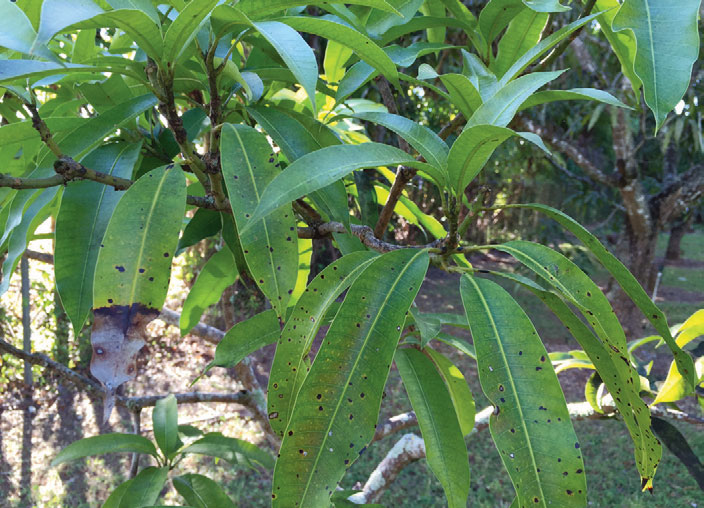Quit Drowning Your Plants
Plants don't need as much water as you think!
In South Florida, we have the luxury of a true rainy season. Our average rainfall is just over 43 inches during the months of May through October. In contrast, our November-to-April dry season has an average of only 14 inches of rain. This semi-monsoon climate gives our plants plenty of water during the summer months when they’re growing, and withholds it in the winter and early spring when plants slow down due to declining temperatures and humidity.
Most plants in South Florida can survive quite well with little to no supplemental irrigation. Sod is a big water consumer, especially during the dry season, but most palms, ornamentals and fruit trees will do quite well with just what Mother Nature provides. Less water on your plants means more water for everything else, and water conservation is important not just for South Florida, but for the entire planet.
MANGOS AND MONSOONS
Many fruit and flowering trees actually need a dry period to properly fruit or flower. The magnificent mango, Mangifera indica, is native to India where their monsoon climate is similar to ours. In South Florida, mangos start preparing for bloom when the rains stop in early November. Our prolonged dry period, coupled with a minor cold front, helps to initiate a synchronized mango bloom, and you will often see a large bloom about 30 days or so after a cold front. Multiple cold fronts can bring multiple blooms. South Florida has a true mango season from June to August because of the dry and cool winters. Hawaii has mangos as well, but they bloom sporadically throughout the year because their trees don’t get the proper triggers. If your mango tree is sitting in the middle of your lawn, and your lawn is watered twice a week, then your mango tree will not bloom and fruit as it should because it isn’t getting the right signals to know what to do.
Avocados are notorious for not liking their feet wet. A fungus present in most soils becomes active when the soil is waterlogged. According to a UF/ IFAS EDIS publication, signs of Avocado Root Rot and Seedling Blight, caused by Phytophthora spp., include small leaf production and chlorosis on the leaves, which are prone to wilting. Leaf abscission is common with root rot, and new growth is absent. Roots become blackened and brittle, and the affected trees will often set a heavy crop of small fruit.
Spondias need to dry out, and longan and lychee also need to have a dormant period. Really, unless it’s a plant that grows in the wetlands, nothing will do well with too much water.
Too much water can be worse than too little, especially when a plant is young. Overwatering can cause roots to suffocate, rot and eventually die. Fungi are known water dwellers and can easily take hold in a plant that is overwatered. Strong, healthy roots are the literal foundation for a good plant, and overwatering will not allow roots to properly develop.
WATER WISELY
You must water new plants because they haven’t yet developed enough feeder roots or storage roots to find and store the water they need to survive. Just don’t water on a rigid schedule – water with intelligence. Put your finger in the soil above the plant’s roots each day. If the soil is dry, water it. If it is wet, don’t. It’s that simple. If you get on a schedule of watering a new plant every day, especially if the soil is already saturated, you can kill or severely weaken the plant. And don’t get me started about watering right after a good rain. Roots need oxygen, and too much water deprives them of that. Harming a plant’s roots when it is young can negatively affect the plant for the rest of its life.
FIND OUT MORE: Miami-Dade County Extension has an irrigation conservation program called the Urban Conservation Unit (U.C.U) for homeowners and large properties. This program provides free irrigation assessments, and participants can receive rebates for retrofitting their irrigation systems to improve water efficiency. For more information, visit greenyardsmiami.blogspot.com. For more information about commercial tropical fruit in South Florida, contact jwasielewski@ufl.edu.





